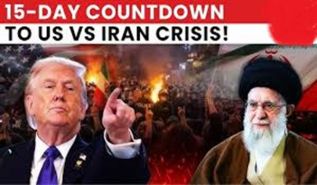بسم الله الرحمن الرحيم
The Islamic Aqeedah is the Foundation of Salvation and the Compass of life
(Translated)
By: Ustadh Mayyas Al-Mukardi
Al-Rayah Newspaper - Issue 557 - 23/07/2025 CE
Aqeedah (doctrine), linguistically, is what is held in the heart, and in Islamic Shariah, it is to believe in Allah (swt), His Angels, His Books, His Messengers, the Last Day, and in Divine Decree, both its good and its bad. This is stated in the two authentic collections (al-Bukhari and Muslim) in the hadith of Umar ibn al-Khattab (ra), where a man came to the Prophet (saw) asking and affirming what he said, until he asked, فَأَخْبِرْنِى عَنِ الإِيمَانِ “Tell me about Iman”. The Prophet (saw) replied, «أَنْ تُؤْمِنَ بِاللهِ وَمَلاَئِكَتِهِ وَكُتُبِهِ وَرُسُلِهِ وَالْيَوْمِ الآخِرِ وَتُؤْمِنَ بِالْقَدَرِ خَيْرِهِ وَشَرِّهِ»“It is to believe in Allah, His angels, His books, His messengers, the Last Day, and to believe in the divine determination (al-qadar), both its good and its bad”.
It is the firm conviction that aligns with reality based on evidence. The Islamic Aqeedah is a rational belief, as a person is required to use their intellect as a means to believe with certainty in the necessity of the existence of the Creator (swt), that He (swt) created the universe from nothing, that He (swt) is not like His creation, that the Noble Qur’an is the speech of Allah (swt), and that Muhammad (saw) is a Messenger of Allah (saw).After establishing these fundamentals through rational evidence, one then accepts the other pillars of Iman that are known through transmitted confirmed evidences, and the role of the intellect ends for the definitive textual evidences which the mind alone cannot be used to confirm.
The Islamic Aqeedah is a political creed, meaning it is not a clerical or purely spiritual belief where the believer is content merely to acknowledge the existence of a Creator, while separating that creed from all or some aspects of their life. Instead, it is political in the sense that it emanates from it a system that organizes human life and its interests, and governs and protects his conduct, and oversees his well-being. From this creed emanate the rulings of the Islamic Shariah which organize all of a person’s relationships, whether his relationship with his Creator, or with himself or others among the created. Among these is the relationship of sovereignty between the ruler and the ruled, which is that the sole right to ownership, administration, and regulation of what has been created belongs to the Owner of the universe, Allah ﷻ(swt).
Thus, one of the necessary implications of the Islamic Aqeedah is that it organizes the matter of sovereignty (ḥakimiyyah). The Muslim believes that sovereignty belongs to Allah )swt), and from this belief arises the term Aqeedah of Sovereignty (Aqeedat al-Ḥakimiyyah).
The creed (Aqeedah) is the foundation for the radical transformation of a person’s mentality and emotional disposition, shaping them into an Islamic personality. The Creed of Sovereignty (Aqeedat al-Ḥakimiyyah) is the first and foremost implication of the declaration of Tawḥid, the testimony that, لا إله إلا الله محمد رسول الله “There is no god but Allah, and Muhammad is the Messenger of Allah”. Without the Creed of Sovereignty, the testimony (shahaadah) of Tawḥid loses its true meaning, and its impact becomes routine or superficial. In reality, the Creed of Sovereignty is the practical requirement for living an Islamic life. In other words, it is the foundation of the conflict between Islam and kufr (disbelief).
The concept of the Creed of Sovereignty (Aqeedat al-Ḥakimiyyah), according to ulema of Islamic Aqeedah, rests on two main principles. The first of which is the Creational Sovereignty (al-Ḥakimiyyah al-Takwiniyyah), which is that Allah (swt) is the supreme authority over the universe in terms of creation, decree, and divine planning. This is only denied by atheists (mulhidoon). Our main focus is on the second principle, which is Legislative Sovereignty (al-Ḥakimiyyah al-Tashri’iyyah). In terms of importance, it constitutes the most important level referring to Allah’s exclusive right to legislate and establish laws for His creation.
It is true that the disbelievers do not want Islam in its entirety, but there are three matters, if they succeed in achieving even one of them, they will have gained control over Islam and the Muslims.
- The first matter is stripping the sanctity from the Qur’anic texts. The Orientalists even authored a book for this purpose titled “The History of the Qur’an”, which took around 80 years to complete. Its author was the devilish orientalist Theodor Nöldeke. They view the Noble Qur’an as human speech open to criticism, analysis, discussion, and scrutiny, so to them, it is neither definitive nor sacred. However, they did not succeed in this effort because Muslims hold their Deen sacred regardless of circumstances.
- The second matter is attacking the authenticity of the Sunnah and casting doubt on the books of al-Bukhari, Muslim, and others. Yet, they also failed in this endeavor among the majority of Muslims. While they did manage to win over a few individuals who label themselves as “enlightened”, in truth, they have not been able to inject their poison into the body of the Muslim Ummah. Therefore, even their attempt to undermine the Sunnah has borne no real fruit.
- The third matter is the war against the Creed of Hakimiyyah (Divine Sovereignty), and in this, they have indeed succeeded and gained control over the Muslims. We will elaborate on how they succeeded in certain aspects to help clarify the matter.
The Noble Qur’an commands holding firmly to the Rope of Allah (swt), but they succeeded in dividing the Ummah. The Noble Qur’an commands not to ally with the kuffar (disbelievers), yet today Muslims are being dragged into the UN Security Council and the International Court of Justice, institutions of colonialism that serve none but the interests of the disbelievers. Reality itself is the greatest witness and evidence.
The Noble Qur’an commands Jihad to elevate the word of Allah (swt), but today Muslims fight each other over nationalistic causes, forgetting the creed,
[إِنَّمَا الْمُؤْمِنُونَ إِخْوَةٌ]
“The believers are nothing else than brothers” [TMQ Surah Al-Hujurat: 10]. The Noble Qur’an does not acknowledge any system other than Islam, yet the disbelievers have succeeded in making the regimes of governance in Muslim lands republican and monarchical among others, all of which contradict the creed of Islam and reinforce the fragmentation of the Ummah.
The Noble Qur’an commands us to support our oppressed Muslim brothers and sisters wherever they may be, yet today, Gaza is dying while the armies guard nationalistic borders drawn by colonialism in agreements like Sykes-Picot. There are more than sixty verses in the Noble Book that revolve around the concept of Allah’s Sovereignty (Hakimiyyah).
Therefore, without the creed of Hakimiyyah (Allah’s Sovereignty), the two declarations of faith (the Shahadatayn) lose their full meaning. In fact, true belief cannot be attained and realized except through them. As Allah ﷻ says,
[فَلَا وَرَبِّكَ لَا يُؤْمِنُونَ حَتَّىٰ يُحَكِّمُوكَ فِيمَا شَجَرَ بَيْنَهُمْ ثُمَّ لَا يَجِدُوا فِي أَنفُسِهِمْ حَرَجاً مِّمَّا قَضَيْتَ وَيُسَلِّمُوا تَسْلِيماً]
“But no, by your Lord, they will not truly believe until they make you [O Muhammad] judge in all disputes between them and find within themselves no discomfort from what you have judged and submit fully.” [TMQ Surah An-Nisa: 65]. Without the creed of Hakimiyyah, Islam becomes reduced to rituals practiced in masajid, and even those rituals risk being abandoned as they become disconnected from the comprehensive system that Islam came to establish.
The Messenger of Allah (saw) said, «لَيُنْقَضَنَّ عرى الإسلام عُرْوَةً عُرْوَةً فَكُلَّمَا انْتَقَضَتْ عُرْوَةٌ تَشَبَّثَ النَّاسُ بِالَّتِي تَلِيهَا، وَأَوَّلُهُنَّ نَقْضاً الْحُكْمُ وَآخِرُهُنَّ الصَّلاَةُ» “The bonds of Islam will be undone one by one. Every time a bond is undone, people will cling to the one that comes after it. The first to be undone will be Shariah governance (hukm), and the last will be Shariah prayer (Salah).” [Ahmad, Hakim]. Therefore, Islam made the Shariah obligation of governance like the crown of all Shariah obligations, for if it is abandoned, the rest of the Shariah rulings will gradually fade away, until the final one left is Salah.
Therefore, when we look at people’s reality today, we find that they live by different standards in life—every individual has their own standard. You will see someone whose standard is personal interest: they care neither for their society, nor their country, nor even their Deen. The only part of Deen they hold onto is what directly benefits them like prayer and fasting. Such a person often says phrases like, “Leave creation to the Creator.” A person like this, and many others who are like them, are such that their presence or absence makes no difference. They live only for their own self-interest. Allah (swt) says about those in such a state,
[أَفَرَأَيْتَ مَنِ اتَّخَذَ إِلَهَهُ هَوَاهُ]
“Have you seen the one who takes his own desire as his god?” [TMQ Surah Al-Jathiyah 23]. Indeed, the one who is driven by personal interest is certainly following his desires, because he treats the Deen of Allah (swt) selectively, taking what aligns with his interests, and ignoring, or rejecting, what contradicts them, as if he never heard it at all.
The second standard is when a person blindly follows his superior, teacher, or leader in general. Such a person has essentially taken his leader, who is just a human like himself, as a lord besides Allah (swt). It is narrated from Adiyy ibn Ḥatim (ra) that he said, ‘I came to the Prophet (saw) while I was wearing a cross of gold around my neck. I heard him reciting the verse
[اتَّخَذُوا أَحْبَارَهُمْ وَرُهْبَانَهُمْ أَرْبَاباً مِنْ دُونِ اللهِ]
“They took their rabbis and monks as lords besides Allah…” [TMQ Surah At-Tawbah: 31]. So, I said, ‘O Messenger of Allah (saw), they did not worship them.’ The Prophet (saw) replied, «أَجَلْ، وَلَكِنْ يُحِلُّونَ لَهُمْ مَا حَرَّمَ اللهُ فَيَسْتَحِلُّونَهُ، وَيُحَرِّمُونَ عَلَيْهِمْ مَا أَحَلَّ اللهُ فَيُحَرِّمُونَهُ، فَتِلْكَ عِبَادَتُهُمْ لَهُمْ» “Yes, but they made lawful for them what Allah (swt) had forbidden, so they accepted it as lawful, and they made unlawful what Allah (swt) had permitted, so they accepted it as unlawful and that was their worship of them”.
As for the one who follows the third standard, he is the ideological person who lives his life according to the judgment of Allah (swt). He follows the evidence wherever it leads, and does not give attention to his personal interests if he perceives them to be in conflict with that evidence. This person’s only authority in life is Allah (swt); he walks through life with no judge over him other than Allah ﷻ.




